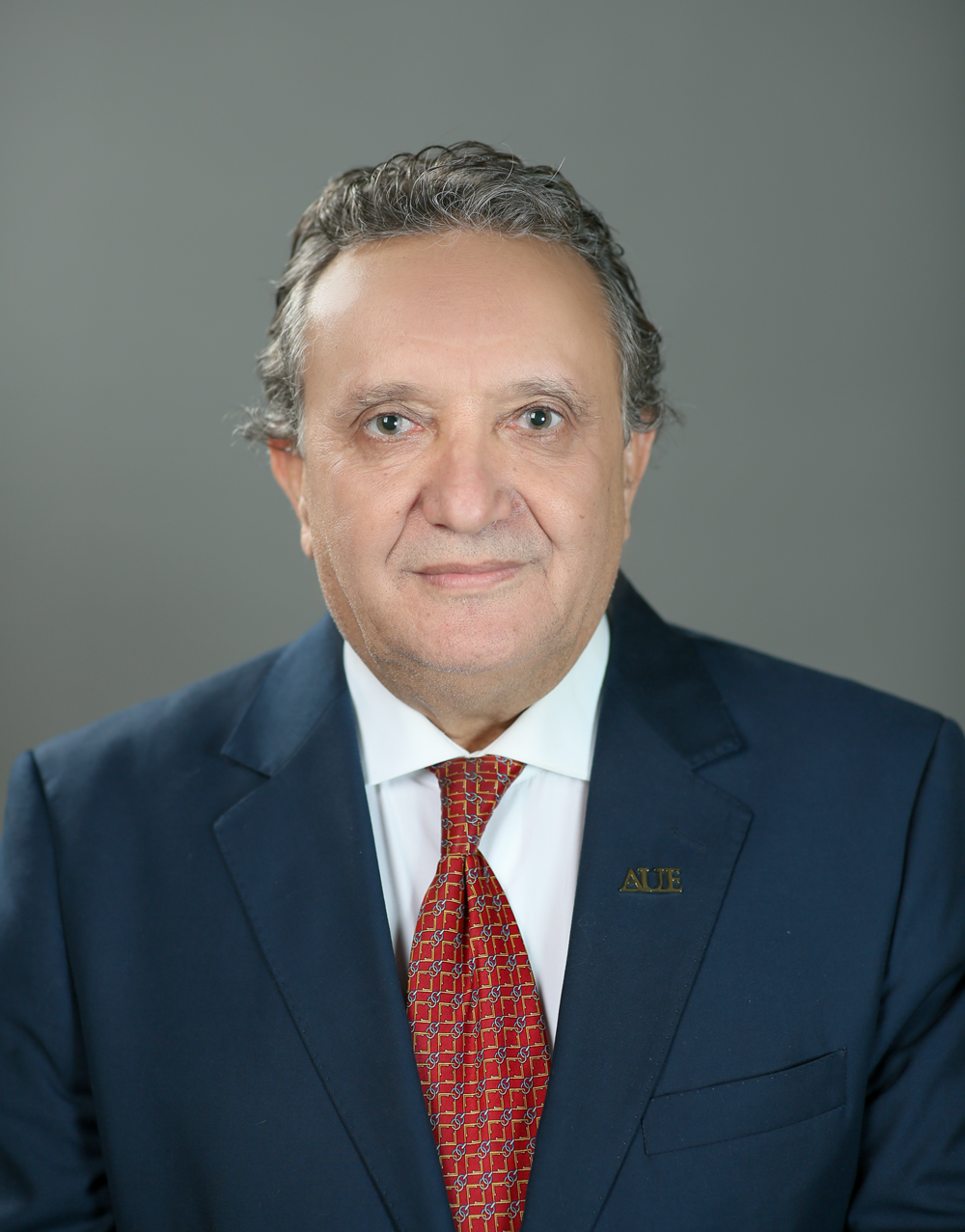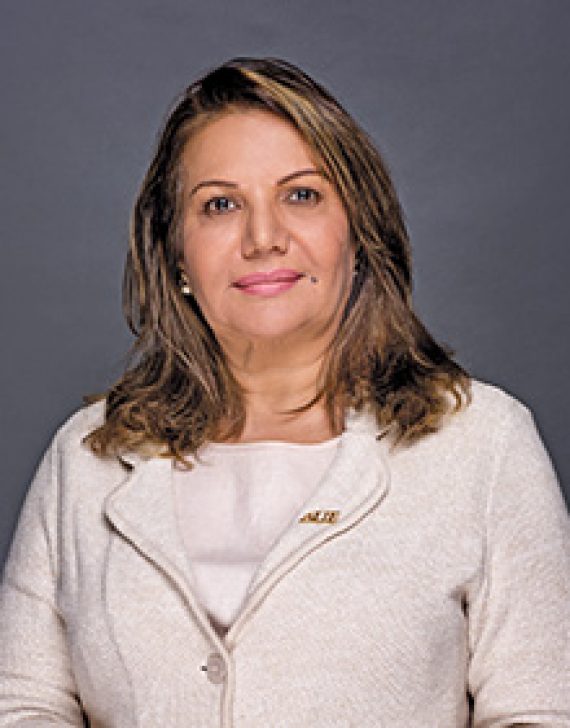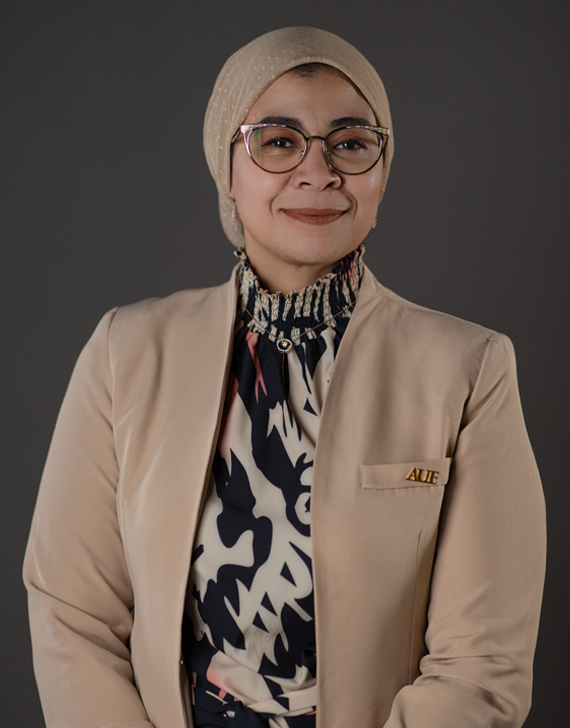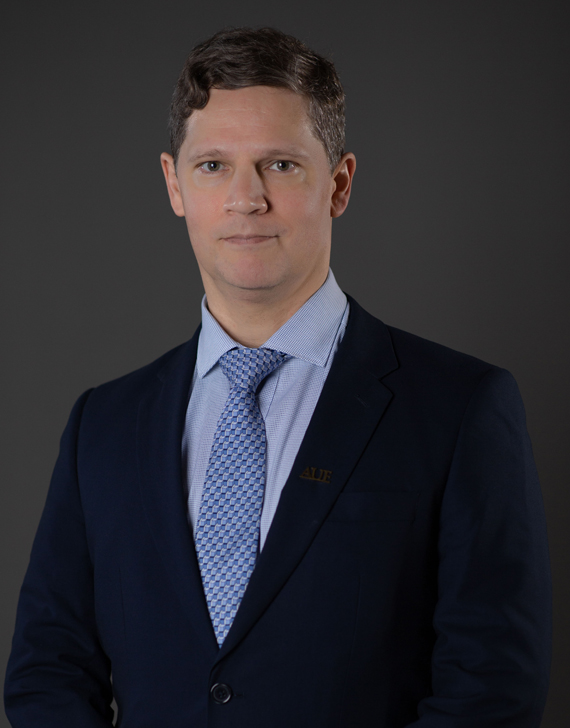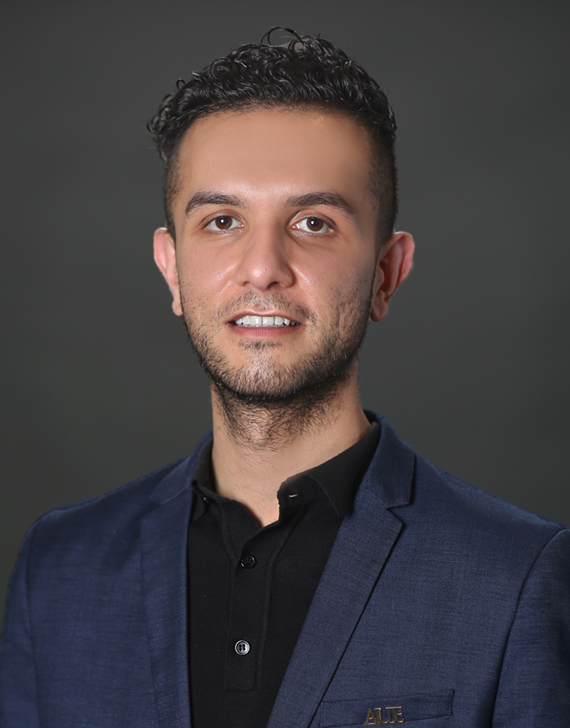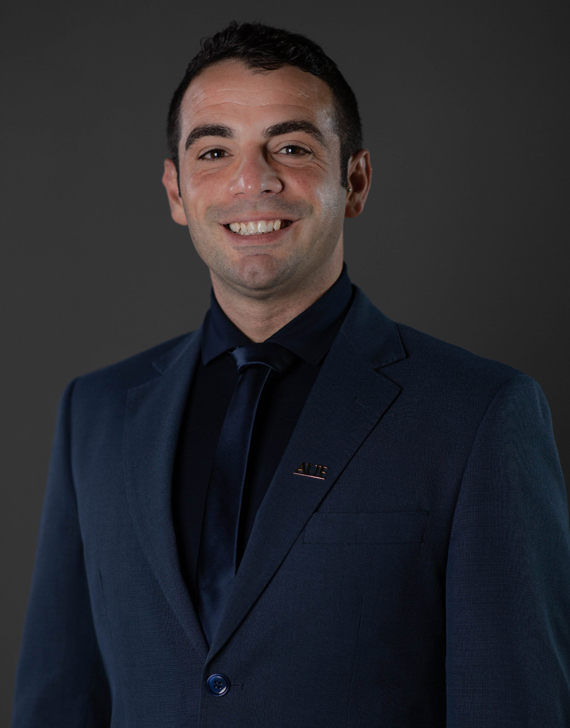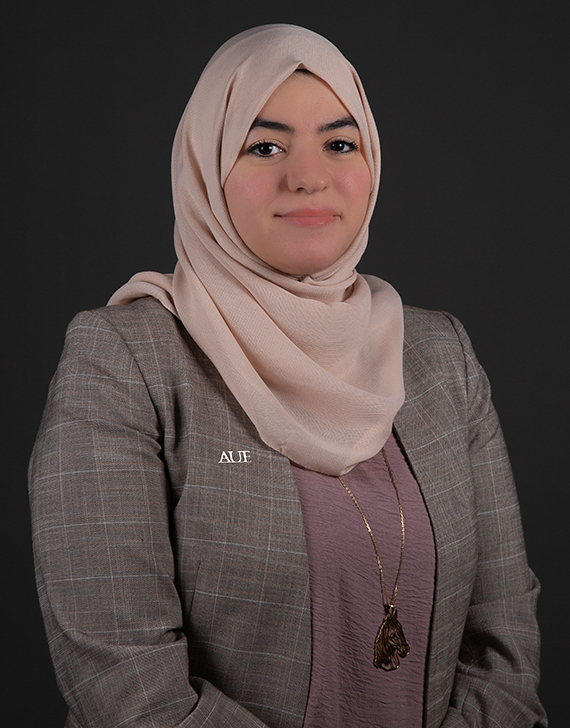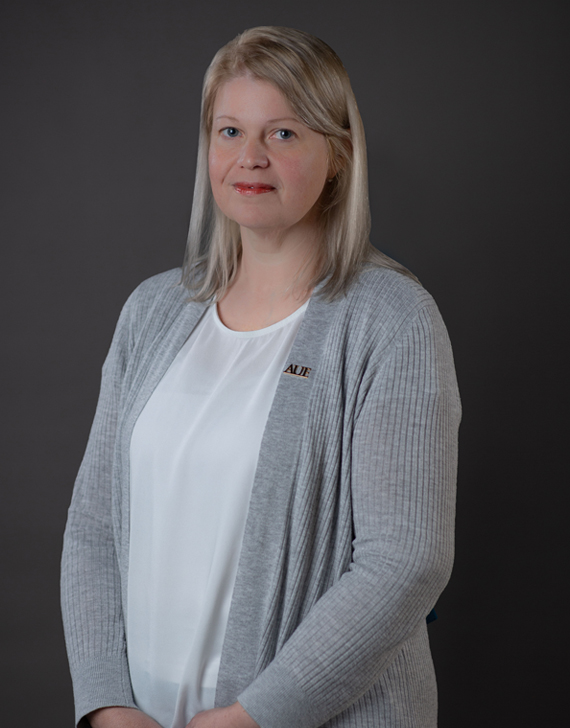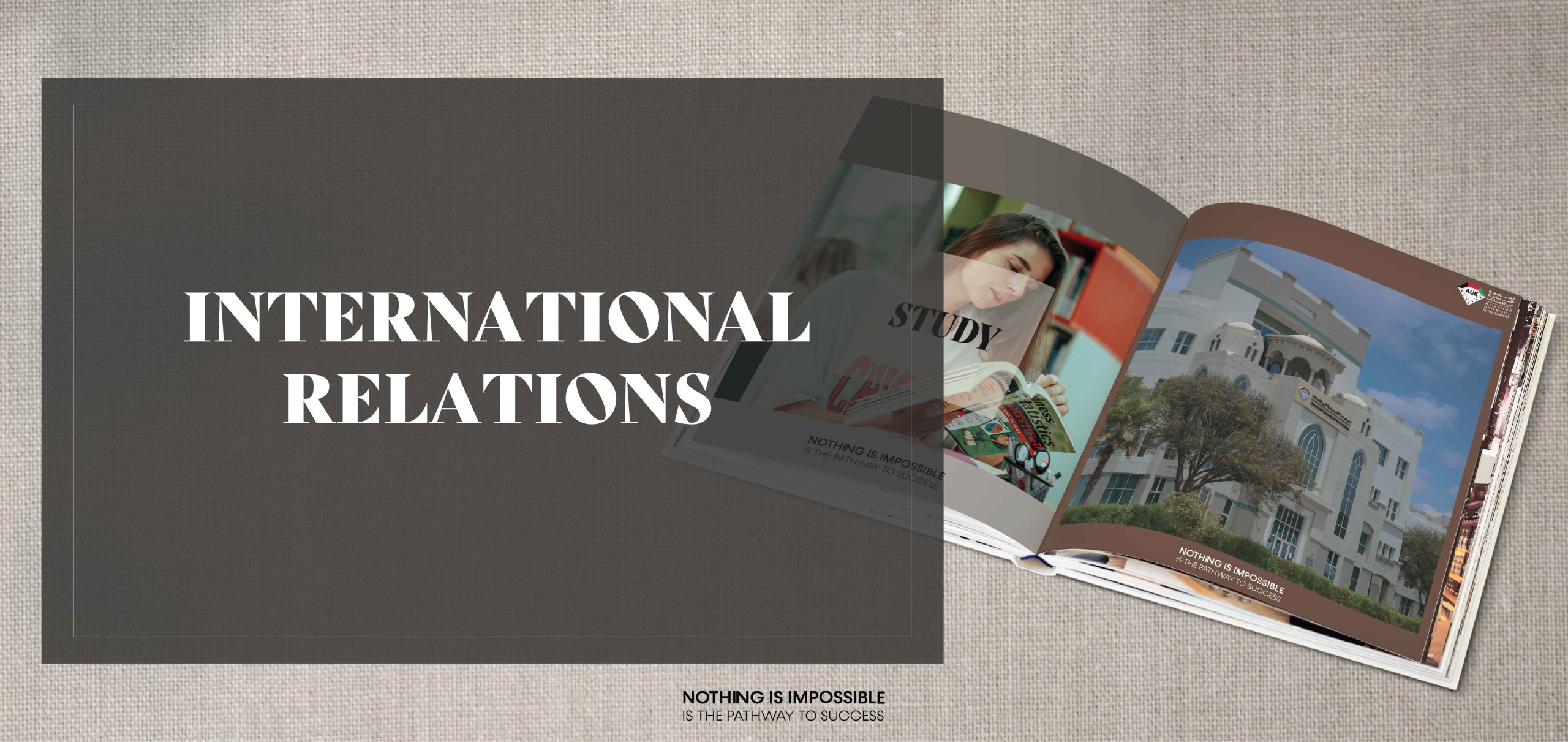
- Overview
- Specialization Structure
- Accreditations
- Faculty
- Admission
-
Duration
4 Years
-
Classes
Weekday Weekend
-
Fees
Tuition (One Semester) ……… Approx. 20,500 AED
One academic year is two semesters
Admission (One Time) ……… 3,150 AED
About Specialization
Bachelor of Arts in Media & Mass Communication - Program Goals
- Equip students with the skills, knowledge, and competency to be professional practitioners in the field of communication.
- Equip students with comprehensive media understanding and involve them in community events to achieve social responsibility.
- Create a platform for research development to enable students to pursue life-long learning and advanced studies in mass communications-related disciplines.
- Provide students with the current industrial standards of their disciplines to meet market demand.
Bachelor of Arts in Media & Mass Communication - Program Learning Outcomes
- Demonstrate the ability to know, evaluate and apply basic mass communication messages in the communication theories.
- Effectively communicate with others in interpersonal, small group and public speaking situation.
- Capable to use appropriate research methods to answer relevant questions.
- Demonstrate sensitivity to the ethical issues to their practice.
- Ability to apply relevant theory to communication practice.
- Apply the integrated marketing communication principles, procedures and strategies.
- Ability to think critically about the relationship between mass media ,society and between nation-states.
- Use the various techniques and skills required for effective public relations, and suggest appropriate PR action plans with the cost and time.
- Apply successfully the appropriate concepts, knowledge, skills and theories of radio and television media.
Preparatory Courses
Prior to their enrollment in the program, students applying for Bachelor of Arts in Media and Mass Communication must sit for the placement test related to the program, failure to successfully passing the placement test, they are required to enroll in the following courses:
#
1
2
Course Code
CIT 90
ENG 99
Courses
Computer Preparatory
Academic Writing (*)
Credit Hours
0
0
Exemption Condition
Passing the Placement Test
Passing the Placement Test
Program Structure
Course Category
General Education Courses
Core Courses
Specialization Courses
Free Electives
Total
Total Number of Courses
19
9
11
5
44 Courses
Total Number of Credit Hours
57
24
30
15
126 Credit Hours
- General Education Courses
- Core Courses
- Specialization Courses
- Free Electives
A: University Core Requirements
The student selects 6 credit hours (2 courses) from the list below:
B: Languages and Communication Studies
The student must select 9 credit hours (3 courses) from the list below.
Students must take all of the following courses:
Students must take one of the following Arabic Language courses:
C: The Natural sciences or Mathematics
The student must select 6 credit hours (2 courses) from the list below:
D: The Social or Behavioral Sciences
The student must select 3 credit hours (1 course) from the list below:
E: The Humanities or Arts
The student must select 3 credit hours (1 course) from the list below:
F: Islamic Studies
The student must select 3 credit hours (1 course) from the list below
G: UAE Studies
The student must select 3 credit hours (1 course) from the list below.
This course is a fully developed introduction to the fundamentals of the theories that define the communication discipline and professions. This being journalism, public relations, multimedia productions, and s. Covering the main questions and theories emphasizing the emergence of mass communication in the UAE and the Gulf States (GCC) at large.
A course designed for the student interested in developing speaking skills. Emphasis will be placed on organization, supporting material, delivery, and audience analysis. Further attention is given to the study of social relationships and the communication process.
Students will be required to apply their insight about the subject by contributing on available social mediums and platforms through intuitive course projects. The course will investigate the connection amongst media and human conduct, and will examine how corporations are capitalizing through social mediums.
This course will provide the students with a comprehensive overview of writing for the Mass Media. The students are expected to understand the basic principles of writing for the mass media.
Pre-Internship is designed for students seeking an internship. The course will prepare students to successfully plan their internship by researching and identifying potential internship opportunities, creating professional resume and letter of introduction, developing interviewing and networking skills as well as a portfolio per industry requirements. Students will go through different learning modules including experiences, team work skills, communication skills, leadership skills, problem solving, self-management and professionalism to be able to make the most of their internship.
Internship is an experience external to the University for a student in a specialized field involving a written agreement between AUE/the Training and Continuing Education Centre and MMC Firms. AUE internship course provides experience related to each student’s academic specialization and the opportunity is open to all MMC students who have completed 90 Credit Hours, and who have a GPA of at least 2.00. The internship course is an ongoing seminar between the student, the faculty member, and the workplace/ employment supervisor at the end of which, each student presents his/her project to his/her class and the MMC faculty summarizing the internship experience and how it has influenced their education and career objectives.
This course provides the students with the basic knowledge base of public opinion and propaganda. Covering the discourse of Public knowledge, public policies and diplomacy. The main skills attained will enclose negotiation, critical analysis and knowledge in the public domain. Principally, the major components are the political and social aspect of public opinion and propaganda.
This course examines the role of the mass media in modern society and the influence of media institutions and messages on individuals, communities, and society. The course includes an overview of the basic methods associated with media research. Students will be asked to integrate theoretical knowledge into media research areas relevant to communication professionals today.
The Media Law and Ethics is a course which teaches the ethical and judicial issues in mass communication. Regulations concerning advertising, PR and journalism including the social media are also topical in this course. Issues such as censorship, libel, personal privacy, ownership of information will be leaned in a basic sense.
Students in International Communication will build personal understanding of relevant areas of 1) communication, 2) strategic messaging, 3) international health communication, and finally, 4) international relations including its relation to cultural studies of global media. This intensive course critically engages with key areas such as: global communication, international politics, transnationalism, security, stakeholders, social movements. Students observe contemporary developments in the realm of global and transnational media. Examples include East/West relations, global online communities, global/local interactions, transnational media and media flows, role of technology, models of mass communication, cultural production of global media, hybridity, etc. Students gain an appreciation for the scale and scope of global communication across borders and how new subcultures form through surprising interfaces between peoples and nations.
This is an introductory Level III course on International Relations (IR) which is foundational for all students who want to become familiar with the theoretical and conceptual language of IR as a subset of political science. The course will begin by teaching students the basic theories, concepts, methods, and principles used in the field as well as with the formation, evolution, and extension of the modern nation-state system and its challenges by discussing concepts such as sovereignty, free-trade, and civilization, including themes such as pre-emptive war, Global War on Terror, and Liberal (humanitarian) Interventionism. To do so, students will familiarize themselves with conceptual frameworks necessary to critically evaluate events (i.e., Arab uprising) by attempting to explain their effects – especially in the Arab World – through three facets: 1) International Security (IS), 2) International Political Economy (IPE), and 3) International Law (IL). To do so, following week 4, students will be introduced to a thematic exploration of major topics of international relations by moving beyond “Mainstream” approaches thereby familiarizing themselves with how a “Critical/Alternative” approach seeking to deconstruct and reveal the limit of mainstream (realist) communicated narratives in channeling justice. These include topics relating to Terrorism, Pre-Emptive War Strategy, National Security Doctrine, Internal and External Displacement, Private Military Contractors, Humanitarian Intervention, and Democratization.
International Journalism focuses on the origins, development, export and modern Western journalistic practice. Beginning with the origins of the field in the age of mercantilism, this course traces the rise of newspapers in the 19th and 20thcenturies and the rise of what Jurgen Habermas called the “public sphere.” As such, important parallels are drawn with the functioning of contemporary democracies and the export of the Western “free press” model of journalism. The course incorporates consideration of comparative media systems, including Western (“free” or “public service”), developing, revolutionary and authoritarian (formerly, Soviet), and the impact of current events such as political turmoil, climate change, COVID-19, etc., on the Western and developing models. Students in the course will gain expanded knowledge of the history and origins of journalism and will refine skills that allow them to meaningfully critique journalism and compare and contrast among existing media systems. Students should also gain exposure to work of professionals in the field, e.g., celebrated journalists, international correspondents, etc. Students should gain an opportunity to better understand the profession of international reporting and read some classic examples of journalism by international reporters, while being inspired to produce their own work.
This course introduces students to Critical Media Studies (CMS) by utilizing Critical Security Studies (CSS) thereby further analyzing the links between communication, political sociology, and government. Traditionally, mainstream security studies structuring International Relations (IR) literature focuses on state security and the state as the main referent object thereby reifying a (neo)-realist and/or (neo)-liberal lenses to communicate and frame political issues informing world events. This course is divided into 3 parts. The first part will introduce students to the evolution of media in the Arab world. The second section will introduce students to a variety of critical approaches and/or frameworks to further deconstruct the effects and relations linking media, politics, and government. These include Critical Theory, Discourse Analysis, Postcolonialism, Post-Structuralism, and Securitization Theory. The themes this course will analyze and debate using the aforementioned approaches include: the Environment, Gender, Modernity, Civilization, Migration, Border Security, and finally, Terrorism. In short, our goal is to use a CMS and CSS approach to broaden our intellectual horizon thereby interpreting, communicating, and explaining contemporary issues by navigating inter-disciplinary approaches accenting politics, media, and government.
Media and conflict course is an important course that allow the students to develop an understanding of how media deals with the critical issues like war, security, and conflicts in national and international contexts. The course will provide a cross-disciplinary approach considering both cultural and political dimensions relating to media responses. The course will focus on some several thematic issues like a) public diplomacy and soft power, b) the role of new media in perceptions of conflict, circulation, and reception of imagery of conflict, and finally, c) the effects of news reporting on government policy and NGO activity.
This Level 4 course seeks to extend students with a multi-disciplinary and critical understanding of the complex ways in which peoples conduct politics in the Arab and non-Arab world. It addresses the questions of Why, what, and how to study and compare different political and economic systems. From a Comparative Political perspective going beyond a problem-solving approach in tandem with the use of a critical political sociology approach, the course examines the historical, economic, social, and cultural factors that have shaped politics across the East (i.e., Orient) and the West (i.e., Occident) during the 20th and 21st century. It aims to make students cognizant of historically contingent concepts and/or theoretical frameworks, such as the Nation-State and the Ummah, Modernization theories and the Dependency School, Religion and Secularism, and finally, Globalization and Social Movements, thereby equipping students with conceptual tools helping them compare different societies and explain their failure and/or success in developing political-economic system. Themes this course will navigate include gender and politics, social movements, and the Arab uprising, “civil society” and globalization, and finally, the global political economy, are examined in order to illustrate the changing and differing nature of politics in the Arab and non-Arab world in recent years.
What does it mean to think, and act, ethically and morally in the world? What is the relationship between ethics, politics, and power? The objective of this course is to familiarize students with the necessary theoretical, philosophical, and historical perspectives allowing them to think critically about theories and issues related to relation between ethics and politics. International ethics is a rapidly expanding field within the discipline of International Relations because of the clear moral and unethical posture of many recent global problems occurring, and concepts accenting, the 20th and 21st century. In relation to events these include exponential poverty and inequality, climate change, universalizing/globalizing a particular philosophical worldview, internal/external displacement, and pre-emptive war(s). In relation to concepts these include the nation-state and ummah, religion and secularism, reason and revelation, free-trade and fair-trade, human and citizen. This course will examine mainstream International Relations theoretical perspectives (i.e., neo-realism and neo-liberalism) and will then move on to discuss the incorporation of different/critical theoretical perspectives. These approaches are necessary to examine ethical issues, including the ethics of war and the global war on terror, the political economy, the recent refugee crisis, and humanitarian interventions. By the conclusion of the course students should have familiarized themselves with the limit of mainstream approaches to IR and use critical approaches aiding them to analyze issues thereby making global political relations more ethical.
With our planet’s population now more urban than rural, a visible pyroxene, more than 30 years of above average global surface temperatures, changing geopolitical relationships that shape migration, military engagement, and markets, the world is in constant turmoil. But beyond the fact of flux – which is a natural human phenomenon – what are the politics of these ecological and social challenges? Some transformations generate environmental and social harm, while others promote a shift to greater equity and sustainability. In light of these sociological tensions, this course on sustainable environmental politics takes as its focus the politics of reconstruction and transformation. Our main framing question is the following: how and with what consequences are humans transforming our planet? As a Level 4 course, the students will be exposed to multiple perspectives to answer this question. Throughout this course, with an international relations lens, we will investigate the nature of – and responses to – global environmental challenges and changes, considering a critical approach to questions and assumptions examining a number of key areas such as global environmental politics, including transnational governance, political economy, and environmental justice.
This Level 4 course is designed to provide students with a thorough understanding of the relation between cultural diplomacy (i.e., soft power or smart power) and International Relations. A foreign policy and its transcultural relations can succeed or fail depending on the cultural traits embodying and communicated between two or more countries. Cultural diplomacy – as an (re)emerging type of public diplomacy – is one of the main instruments of political power and in many contexts is more effective than the application of coercion and declaration of war by a state. In fact, many of the global issues facing the world today are incapable of a military solution, thereby lending themselves instead to (cultural) diplomacy to address. This course delves into the history of diplomacy and the role of “culture” in mitigating or faltering diplomatic relations by providing students with a “cultural understanding” of the institution of diplomacy and how it has evolved in the 20th and 21st century. The multiple diplomatic vehicles navigated throughout this course emphasizing the practice of cultural diplomacy include: Gastronomy, Sports, Artistic Sites (i.e., museums, movies, festivals), and Educational Exchange Programs. While a realist approach to international relations considers diplomacy – therefore culture – as trivial since it is interests rather than principles that inform such worldview, this course seeks to emphasize why and how an international relations based on civilizational homogeneity rather than cultural heterogeneity complicates cooperation between different cultural backgrounds. Since the course is divided into 3 sections, by the end of the course, students will be able to understand the conceptual foundations of cultural diplomacy as a field as well as to analyze a variety of past and current examples of successes and failures in diplomacy such as the lack of inter-religious dialogue or the lack of dialogue that exists between certain cultures and societies of the world.
The pre-capstone course is designed to prepare the students to the pre-production planning and processes for integrated marketing communication projects and campaigns. The students will follow certain steps in the production process while identifying and presenting their idea, concept and methodology. The students will have comprehensive knowledge about writing the capstone proposals, reports, presentations and designing the ideas for the different IMC campaigns.
Media and Mass Communication students are required to complete a three-credit hour course on the Capstone Graduation Project. To be graduated, students are requested to demonstrate that they have developed capability and proficiency in the core knowledge of their specialization and can show capability in learning aptitudes in the four specializations. It will be a challenging and thorough adventure however the reward for undertaking a significant experience are enormous and will without a doubt give AUE graduates a capable begin in vocation they may pick. Moreover, English dialect and innovation capability should likewise be illustrated. The Capstone Graduation Projects ought to be as field-based. The Capstone Graduation Project is intended to give students a helpful working comprehension of the requirements and desires expected to move on from AUE.
Choose 15 credit hours from any other college/specialization with the condition that all the prerequisites of the chosen courses are met.
Recommended Study Plan
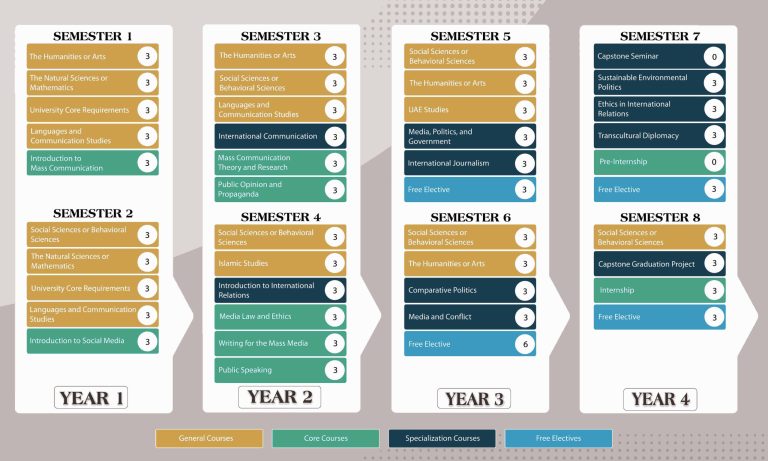
Accreditations
The American University in the Emirates is licensed by the UAE Ministry of Education – Commission for Academic Accreditation | caa.ae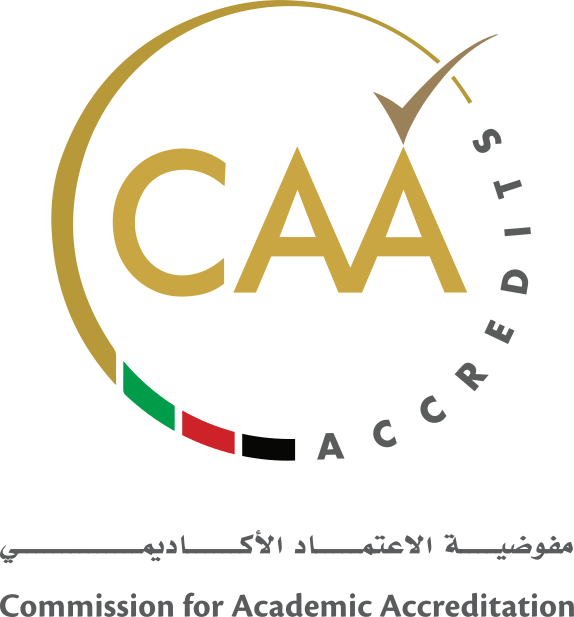
- For Admission Requirements for Freshman students (those who have just completed high school and have never attended an Institute of Higher Education before) click here
- For Admission Requirements for Transfer students (those who have studied at another higher education institution and would like to transfer their credits to AUE) click here
- For Admission Requirements for Visiting students (those who are currently enrolled in a different higher education institution and would like to take some courses at AUE as part of the study plan of their home university/college) click here
Joining the Program
- Fall Semester
-
September
-
Spring Semester
- January
- Summer Semester
- May
